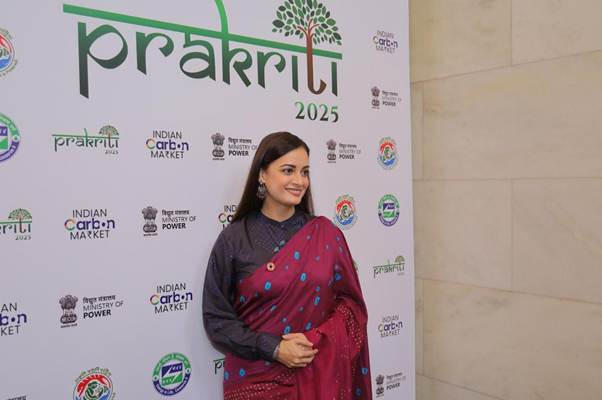PRAKRITI 2025

- 28 Feb 2025
In News:
- The International Conference on Carbon Markets – PRAKRITI 2025 was inaugurated by the Minister of Power and Housing and Urban Affairs.
- Organized by the Bureau of Energy Efficiency (BEE) under the Ministry of Power, the event served as a major platform for global dialogue on carbon markets, climate finance, and sustainability strategies.
Key Highlights:
PRAKRITI 2025 (Promoting Resilience, Awareness, Knowledge, and Resources for Integrating Transformational Initiatives) aimed to:
- Understand the functioning of Indian and global carbon markets.
- Discuss challenges, dynamics, and opportunities in carbon trading.
- Strengthen carbon credits, offset mechanisms, and compliance systems.
- Promote renewable energy, green innovations, and ecosystem-based interventions.
- Foster collaboration between governments, industries, and citizens.
Insights from PRAKRITI 2025
- Global Linkages:India’s carbon market will increasingly be influenced by global policies such as the European Union’s Carbon Border Adjustment Mechanism (CBAM), which imposes carbon pricing on imports like steel and aluminium. Indian industries must prepare to maintain competitiveness.
- Carbon Market Mechanisms:
- Under Article 6 of the Paris Agreement, carbon trading allows entities to buy carbon credits to offset emissions.
- Carbon credit = reduction of 1 metric ton of CO? or equivalent GHGs.
- India’s Progress:
- India ranks second globally in Clean Development Mechanism (CDM) project registrations.
- The Perform, Achieve and Trade (PAT) scheme, regulated by BEE, has saved over 106 million tonnes of CO? since 2015.
- Development of a domestic carbon market is a priority to align with global standards and leverage international finance.
- Challenges Highlighted:
- Need for robust Monitoring, Reporting, and Verification (MRV) frameworks.
- Ensuring fair benefit distribution among stakeholders.
- Developing policies tailored to India’s economic and social realities.
- Increasing private sector engagement and incentivizing renewable energy developers.
Bureau of Energy Efficiency (BEE)
- Established: 1 March 2002 under the Energy Conservation Act, 2001.
- Mandate: Develop policies and programmes to promote energy efficiency, coordinate with stakeholders, and promote self-regulation within market principles to reduce India's energy intensity.
- Role in Carbon Market: BEE is the nodal agency regulating India’s carbon trading schemes and energy conservation initiatives.
